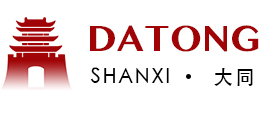Diverse daylilies bring bright future to Datong
When the daylilies bloom in Datong in the summer months, the city not only becomes awash with gleaming amber and deep vermilion, but it also signals the recent harvest of the specialty crop that has enriched the lives of local horticulturalists.
In May 2020, President Xi Jinping said during his trip to the city in North China's Shanxi province that it should develop the local daylily industry and for it to have its own special brand identity in order to improve the livelihoods of local people.
Yunzhou district in Datong has a 600-year history of planting daylilies and is one of the four main production areas in China for the flower, which has not only ornamental uses, but can also be dried and eaten.
Yang Qi, a 54-year-old from the district's village of Xiayujian, runs his own business cultivating daylilies. He said that the villagers have planted the lilies for generations, but large-scale planting only started several years ago.
"The landholders used to grow daylilies on small parcels of land to cover basic living expenses," he said. "Growing daylilies was prioritized as one of the district's pillar industries in 2012 and since then more people have joined in."
Yang said that around 11,333 hectares are devoted to planting daylilies in the district now, and a full industrial chain for processing has been established.
"As far as I know, there are 50 cooperatives and 15 companies in the district involved in daylily processing," he said. "Processed daylilies share a quite good market in recent years with fresh ones. Fresh daylilies sell at 3.6 yuan (51 cents) per kilogram and dried daylilies sell at over 40 yuan per kg."
Daylilies are harvested around July in Datong with the harvest season lasting about 40 days.
"We pick up the lilies in the early morning and dry them in the sun for one or two days. Gross income can reach over 10,000 yuan per mu (1/15 hectare) at its peak."
Yang said that the markets for daylilies are predominantly in coastal areas such as Tianjin and southern Guangdong province. He said dried daylilies are preferred by Fujian residents, who use them as part of tributes at memorial events. "Dried daylilies are also exported overseas."
Zhang Jinming, deputy head of Yunzhou district, said that Datong enjoys great advantages in producing daylilies, with the planting areas enriched by volcanic soil high in nutrients.
"Thanks to the privileged environment, daylilies growing here are chewy and have more beautiful colors," he said. "We set the goal that the full industrial chain for daylilies reaches 4 billion yuan this year."
To boost the daylily market, the Datong government has released plans in the past few years focusing on high-quality processing, and has organized several online livestreaming activities to help sell daylily products.
In 2020, the city organized four livestreaming shows with China Central Television and e-commerce platform JD, which attracted over 80 million viewers online and earned a revenue of 13 million yuan.
Zhang said daylily production, however, still faces some problems including shortages of pickers and space for drying.
"It remains uncertain whether we will have enough workers to pick daylilies due to COVID-19 epidemic control measures, which require us to plan out solutions to secure production," he said. "The market is another problem that needs joint efforts from official departments and companies."
Contact the writers at chengsi@chinadaily.com.cn


